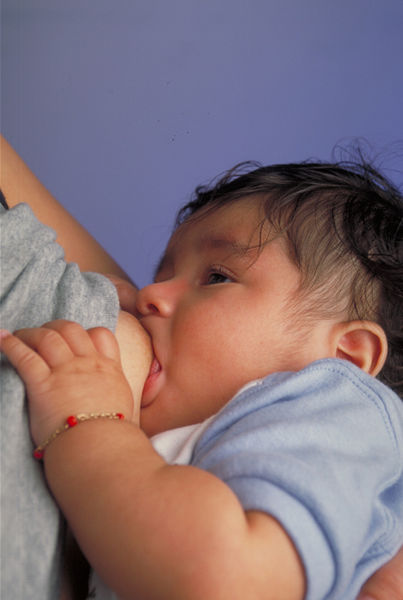Scientists have discovered how babies absorb antibodies from their mother's breast milk.
 Writing in Nature this week, Howard Hughes Medical Institute researcher Pamela Bjorkman and her team made surrogate antibodies that they could easily see by linking tiny gold nanoparticles to a molecule called Fc, which is normally present on antibodies and is the means by which they communicate with other cells in the immune system. The researchers then fed these particles to rat pups and used microscopes to follow what happened to the nanoparticles when they met the cells lining the animals' intestines.
Writing in Nature this week, Howard Hughes Medical Institute researcher Pamela Bjorkman and her team made surrogate antibodies that they could easily see by linking tiny gold nanoparticles to a molecule called Fc, which is normally present on antibodies and is the means by which they communicate with other cells in the immune system. The researchers then fed these particles to rat pups and used microscopes to follow what happened to the nanoparticles when they met the cells lining the animals' intestines.
In the upper part of the GI tract the cells lining the intestine have specialised Fc receptors that behave as docking stations for antibodies present in the milk. These grabbed the gold nanoparticles and pulled them into the cell. They were then trafficked across the cell within a tiny bubble or vesicle that was guided by an interal scaffold of filaments called the cytoskeleton. When they reached the opposite side of the cell, adjacent to the bloodstream, they were spat out, just as an antibody would have been.
The researchers found that this ability to move the antibodies in just one direction - from gut to blood - is partly down to pH, in other words how acid or alkaline the local environment is. In the gut itself conditions are slightly acidic, which encourages the Fc molecules on antibodies (or the nanoparticles) to lock on to the Fc receptors. But on the other side of the cell close to the blood conditions are more alkaline and the antibodies can't bind so they float away into the bloodstream.
This finding solves a long standing mystery of how enterocytes - the cells lining the intestine - collect antibodies from breast milk and ship them along the microscopic equivalent of a one way street in the direction of the bloodstream. Since a number of infections including HIV can also be passed via breast milk it's possible that certain bugs can exploit the same route into the body, so an understanding of how it works could help to combat mother to baby spread of disease.










Comments
Add a comment